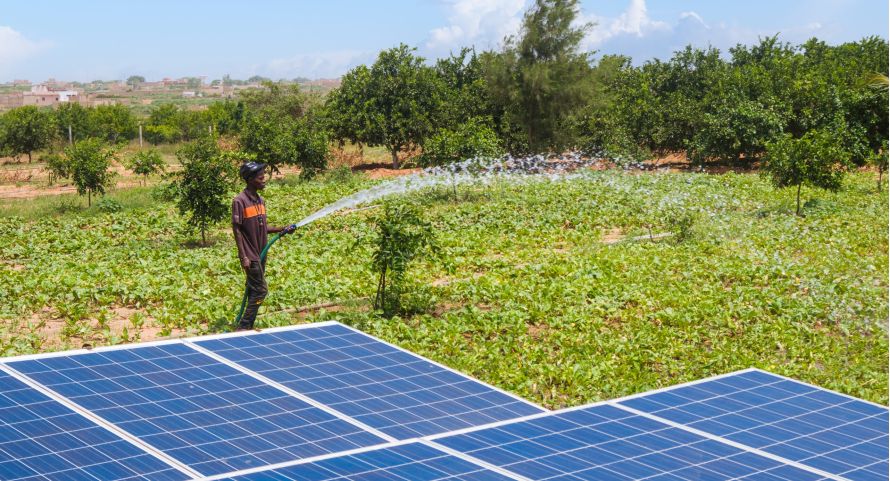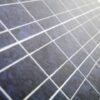Results-based financing lets farmers in Senegal buy solar-powered water pumps, helping to increase harvests

After almost 40 farmers managed to buy solar pumps through the results-based financing approach of Germany’s initiative for green citizen energy, some reported almost 100% increases in their first harvests after installing. No wonder that a further 50 farmers have now registered as potential customers for solar pumps. Ten of them could already buy solar pumps with the help of the Green People’s Energy initiative.
Solar pumps have various advantages over conventional diesel pumps. They cost very little or next to nothing to run and can help cut production costs. With lower costs, farmers do not need to save on irrigation time and on diesel costs. They can irrigate their fields sufficiently and regularly and can also often increase the size of their plots and fields. This can lead to improved quality of agricultural products, and the farmers can demand higher prices. Solar pumps are also less susceptible to damage than diesel pumps and produce neither greenhouse gases nor noise.
Mamadou Dia is a farmer from the village of Mbandji in Senegal’s Potou region. In January 2022, he was able to buy a solar pump with support from the Green People’s Energy, implemented by Deutsche Gesellschaft für Internationale Zusammenarbeit (GIZ) GmbH. As he describes, the purchase has led to practical advantages for his operations and finances. “Since installing the solar pump, I no longer need to buy fuel for the diesel pump. I have more money available to handle daily expenses. With the solar pump, I have also managed to increase my arable land from 0.5 to 1 hectare and can water it regularly. Last year I reached three tons of yield on 0.5 hectares. This year I hope for eight tons on 0.5 hectares. There is enough water available.”
Since installing the solar pump, I no longer need to buy fuel for the diesel pump. I have more money available to handle daily expenses.
Mamadou Dia, farmer from the village of Mbandji in Senegal’s Potou region
The demand for solar pumps in rural areas is understandably high. However, pumps are expensive. Rural farmers can really only buy them with one option for paying in installments. This is where the Green People’s Energy initiative’s results-based financing approach comes in. It enables end customers, the farmers, to pay 90% of the purchase price in installments – through cooperation with a solar company and a microfinance institution. For a more detailed explanation of the results-based financing approach applied by the initiative in Senegal, see this previous article on the approach and its role in the Senegalese solar market.
Amath Biteye, head of the microfinance institution MECZOP, describes the benefits of the approach, “Results-based financing is a win-win partnership. The farmer receives a high-quality solar system on credit with good customer service. The solar pump suppliers expand their customer base and secure repayments of supplier credits through cooperation with financial institutions. The financial institutions, in turn, reach more customers and can lend, despite little liquidity of their own. Half of the price has already been pre-financed by support from German development cooperation, and the other 40% is in the form of a supplier credit.”
Results-based financing is a win-win partnership. Farmers buy quality solar systems on credit. Solar pump suppliers expand their customer base and secure repayments with financial institutions. The banks reach more customers and can lend more.
Amath Biteye, head of MECZOP micro-financing institution
The initiative also insisted on installing higher quality and slightly more upscale pumps. The 39 farmers were so enthusiastic about the amount of water this type of pump now supplies that another 50 potential customers registered on a waiting list to finance them for their own farms. The first ten in the second batch of producers have already received theirs based on a pay-as-you-go approach, i.e. a sales approach that allows installment payments after harvest, and with mediation by the Green People’s Energy initiative.




